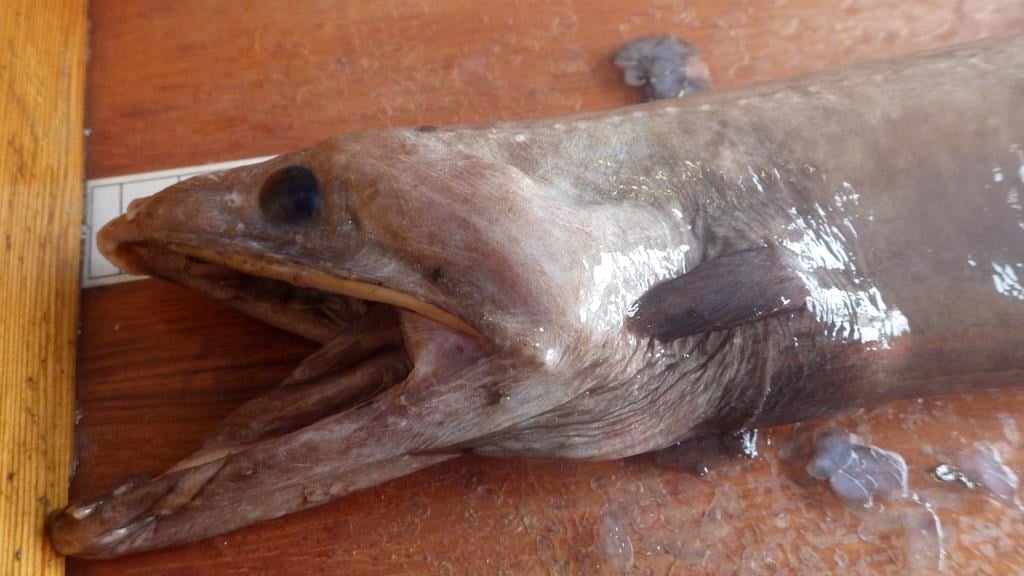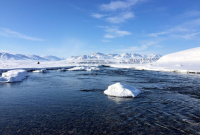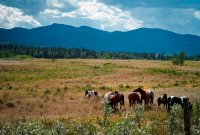Support strong Canadian climate journalism for 2025
Last summer, a team of scientists returned from an expedition in the North Atlantic, armed with DNA samples, marine specimens and videos of bottom-feeding fish, sea spiders and corals.
That treasure trove of data offered the first-ever glimpse into a day in the life at the bottom of the Labrador Sea.
In a few weeks, the project's second expedition led by Newfoundland and Labrador researchers will set out to shed more light on the ocean's darkest, unseen depths.
The initiative, funded by the federal Fisheries Department, will assess the unique ecosystem found up to 3,000 metres below the surface.
Fisheries scientist Dave Cote says last summer's expedition was only "scratching the surface" of the deep sea life waiting to be discovered.
When the first images came back up, his team had no idea what they were about to see.
"We were really going in with a blank slate," Cote said in an interview in St. John's.
"We're not used to that so much anymore these days in science, because a lot of the work has already been done. But deep ocean is one of those frontier areas where you can still find that."
Last summer's expedition offered a rare look at the makeup of the deep ocean's ecosystem, including the possible discovery of the first known spawning location for the blue hake fish species.
This August, scientists aboard the Canadian Coast Guard vessel Amundsen will study a wide cross-section of marine life, including coral and sponges, invertebrates, fish and plankton, seabirds and marine mammals.
The bottom may be too deep and dark for the scientists themselves to get up close, but they're using innovative techniques to help bring an early portrait of the ecosystem into focus. That includes methods like hydro acoustics, which use sound recordings to map out the bottom of the sea.
The team can cross-reference environmental DNA taken from water or sediment with databases of known species to give an idea of what life forms are down there. Images are recorded through submarine cameras attached with bait attached, drawing the deep sea fish into its line of vision.
The initiative goes by the acronym ISE COLD, which means Integrated Studies and Ecosystem Characterization of the Labrador Sea Deep Ocean.
The findings will be used to inform decision-making around any future industrial expansion into the Labrador Sea, as well as to study potential impacts of climate change.
Cote thinks the published research could become a valuable resource for other scientists around the world, as they embark on their own deep-ocean studies.
Because of the cold temperatures at such deep levels, Cote says there may not be much variation between regions as far apart as Labrador and the Caribbean Sea.
And the Labrador Sea is well-positioned as an area uniquely rife with research potential. It's one of the few places in the world where surface water is carried to the bottom through a process called deep water convection, circulating warm currents around the world and impacting the climate.
The transfer of food sources from top to bottom for deep-dwelling organisms could also mean the Labrador Sea is home to one of the world's most densely populated deep-ocean ecosystems, offering important insight to other scientists.
"From an oceanographic perspective, the Labrador Sea is kind of being watched by scientists around the world because it's so important, but from a biological perspective there hasn't been very much work done at all," said Cote.
"It's a pretty exciting project for a scientist to go into a new area where there's no data. It doesn't happen very often these days, so it's kind of privilege for us to go."





Comments
So, now that scientists are able to speak out freely, here's a BIG shout-out for these oceanographers to support moratoria on Labrador Sea - and other ocean areas - industrial development, and push to address climate change!
Thanks, heroes!